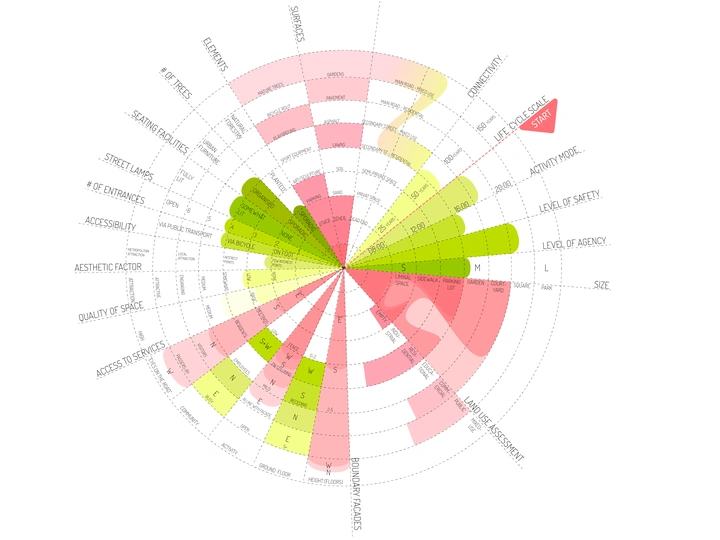The commoncatalogue

Mihal Ronko
Architects Mihal Ronko and Julia Barashkov, graduates of Tel Aviv University, bring a variety of expertise to the project. Mihal specializes in architectural planning for residential and public buildings, as well as archaeological sites and cultural landmarks while handling complex structures with thorough attention to detail. On the other hand, Julia, a former urban planner versed in parametric design turned urban science researcher, currently serves as a research fellow in Germany.
Over the past few years, Julia and Mihal have partnered on a joint research endeavour. Their daily work involves tackling real-life urban scenarios, granting them first-hand insight into the challenges faced by both urban planners and residents when dealing with public spaces. Their shared passion lies in the integration of database analytical software within communities and local initiatives, aiming to empower citizens and return decision-making power to the people.
Central to their vision is leveraging data-driven approaches to enable citizens to drive positive change in their surroundings. With the climate crisis at the forefront of their minds, Mihal and Julia advocate for making the most of the existing built environment before enlarging the carbon footprint, while focusing on developing toolkits and skill sets that encourage co-creation, fostering a better future for society and the planet at large.
Friends since the first year of their Bachelor’s degrees, over 10 years ago, and with a varied portfolio as employees, Julia and Mihal have long dreamt about the opportunity to get their joint personal work out there, and leverage what they have learned into "the real world".
In our fast-paced world, technology shapes our lives, but our cities struggle to keep pace with evolving needs. As architects and urban planners, we face challenges when regenerating urban areas, often taxing resources and causing the displacement of communities. It's time for a change!
THE COMMONCATALOGUE is a research project concentrated on sustainable urban regeneration. Our primary pursuit is to create a data-based intelligence to revitalize existing urban spaces while prioritizing sustainability and community needs. Built from the POV of the urban dweller, this parametric system synthesizes existing data sets and on-site observations to create a ranking system for evaluating the compatibility of an urban commons with its users.
Empowering Urban Dwellers: We believe in redefining the forms, functions, and structures of cities with a focus on social needs and inclusivity. THE COMMONCATALOGUE aims to empower communities to actively participate in shaping urban spaces. By utilizing urban and societal data, urban dwellers get agency over the decision-making processes shaping their neighbourhoods.
A Focus on Existing Spaces: Unlike traditional approaches that often start from scratch and with sustainability at the heart of our project, we emphasize the value of existing urban spaces. The most sustainable resource is a place that already exists. By enriching under-utilized public areas with new ideas and concepts, we can make the most of what we already have.
Data-Driven Solutions: Data plays a vital role in our research. Through a parametric approach, we analyze and evaluate the compatibility of public spaces with their communities and provide site-specific solutions.
Collaborative culture: THE COMMONCATALOGUE is designed for co-creation. We welcome the LINA community to co-developing the project. Throughout the program, we will tie the system to a study-case location and enrich the code with citizen-centric input and feedback.